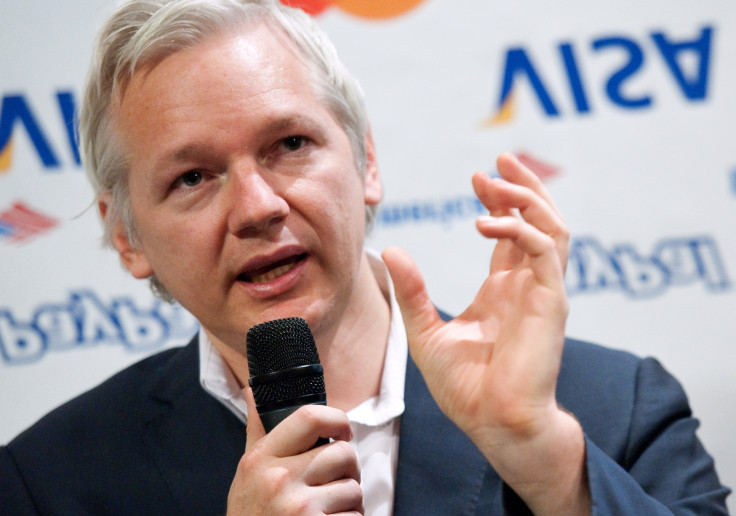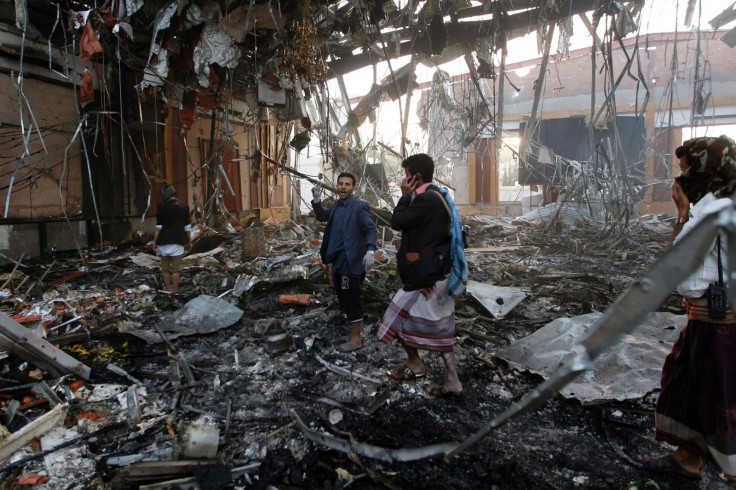WikiLeaks releases 500 files allegedly showing US 'arming and funding' Yemeni forces
WikiLeaks founder Julian Assange: US government provided 'most of the bombs' for civil war.

Whistleblowing website WikiLeaks has released a fresh collection of 500 internal documents allegedly from the United States embassy in Sana'a, the largest city in Yemen, consisting of 200 emails and 300 PDFs detailing military operations prior to the war in the region.
The documents, dubbed The Yemen Files, include official emails and messages from the Office for Military Cooperation (OMC) – a US government-backed entity based in the embassy that allegedly helped security forces in the region to improve counter-terrorism abilities.
The leak, the source of which remains unknown, spans 2009 to March 2015 – just prior to the war breaking out in Yemen. In a statement, WikiLeaks noted it covers both Hillary Clinton's term as Secretary of State (2009-2013) and the first two years of Secretary John Kerry's tenure.
Documents of interest, highlighted by WikiLeaks, appear to show Yemeni procurement of US aircraft, vehicles and biometric systems. "I look forward to building strong, fruitful, and mutually beneficial relations between our armed forces," said letters signed by US Colonel Randolph Rosin.
WikiLeaks said the files show evidence of the US "arming, training and funding" Yemeni forces in the years leading up to the war, which has claimed the lives of over 7,000 people and injured 35,000 more – the majority in air strikes from a coalition of forces led by Saudi Arabia.
The ongoing conflict in Yemen is between forces from the government of President Abdrabbuh Mansour Hadi and those allied to the Houthi rebel movement. The war has caused a dire humanitarian disaster with roughly 80% of the population now in need of urgent aid.
Julian Assange, founder of WikiLeaks, said in a statement: "Although the United States government has provided most of the bombs and is deeply involved in the conduct of the war itself, reportage on the war in English is conspicuously rare."
WikiLeaks's further statement, not believed to be attributed directly to Assange, added: "Yemen is of significant strategic interest as [it] controls a narrow choke point to Red Sea and the Suez Canal through which 11% of the world's petroleum passes each day.
"US presence remained in the country until February 2015 when the US closed its embassy due to the continuing unrest between different factions in the country. The war broke out a month later."

As previously reported, the United Nations (UN) and the World Health Organization (WHO) have declared that Yemen is currently on the "brink of the abyss." In the region, medical facilities have either been shut down or are lacking the proper resources to operate at full capacity.
In 2010, a series of diplomatic cables released by WikiLeaks – as reported by The Guardian – showed the president of Yemen at the time offered US military "unrestricted access" to conduct air strikes against terrorist targets aligned with al-Qaeda which it then claimed as its own work.
The release of The Yemen Files marks a move away from the US political system that WikiLeaks has been associated with in recent months. In a series of high-profile releases, it disclosed nearly 20,000 emails from a Democratic Party group and thousands of emails from the personal inbox of John Podesta, a close aide to Hillary Clinton.
The backlash against the whistleblowing organisation led to the US intelligence community accusing it of working with Russian intelligence to further the interests of the Kremlin. Julian Assange – who remains under political asylum in London – denied all links with the Putin-led government.
The #Yemen Files: evidence of the US arming, training and funding of Yemeni forces | https://t.co/Ri1xvJsnlf #WikiLeaks #YemenCrisis pic.twitter.com/OIT57iGTt6
— WikiLeaks (@wikileaks) November 25, 2016
© Copyright IBTimes 2025. All rights reserved.






















